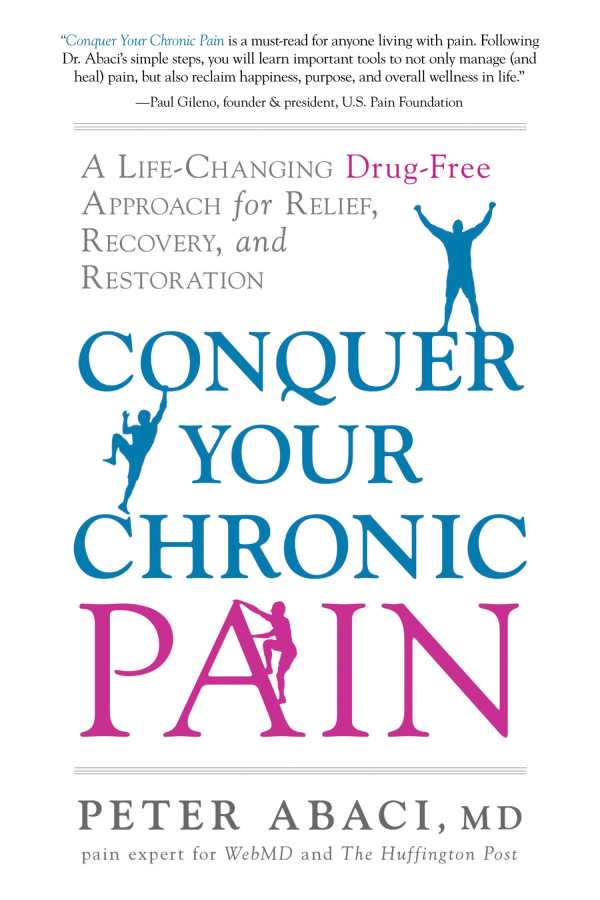Conquer Your Chronic Pain
A Life-Changing Drug-Free Approach for Relief, Recovery, and Restoration
The book will show people in pain how to change their lives for the better.
Conquer Your Chronic Pain, by Peter Abaci, presents a pill-free approach to end pain. A pain management doctor, Abaci takes a biopsychosocial approach to pain—mixing the body’s biological, mental, and interactive responses. This whole-person approach, understanding and addressing pain’s full effect on a person’s life, avoids long-term disability and narcotic addiction.
The book begins with the surprising insight that chronic pain is a disease of the mind—not the “it’s all in your head” dismissal, but that acute pain causes long-term changes to the brain that result in chronic pain. While the brain’s ability to change, neuroplasticity, is part of the problem, it’s also the key to the solution—if the brain can change for the worse, it can also change for the better. Abaci’s work is to find and activate the triggers that help the brain heal, just as an injury caused the brain to change in the first place. Abaci directs people toward attitudes and behaviors that mend the brain. His aim is not simple pain management, but the full life that comes from being pain free.
The book takes a much more empathetic, compassionate, and emotional approach than often comes from an MD, but it’s backed with sound reasoning, scientific research, and proven results. Abaci uses real-life stories and explains science in ways everyday people can understand—and that will ring true for people who deal with pain. The result is a grounded yet hope-filled optimism seldom found in pain management. People dealing with long-term pain will feel as if Abaci is listening to them, rather than simply writing a prescription. While his approach is hopeful and adaptable to a wide range of issues, he also counsels people on how to persevere and how to seek needed professional help.
The book will show people in pain how to change their lives for the better, and gives physicians, practitioners of complementary therapies, and caregivers insight into how to more fully help those in their care.
Reviewed by
Melissa Wuske
Disclosure: This article is not an endorsement, but a review. The publisher of this book provided free copies of the book to have their book reviewed by a professional reviewer. No fee was paid by the publisher for this review. Foreword Reviews only recommends books that we love. Foreword Magazine, Inc. is disclosing this in accordance with the Federal Trade Commission’s 16 CFR, Part 255.

